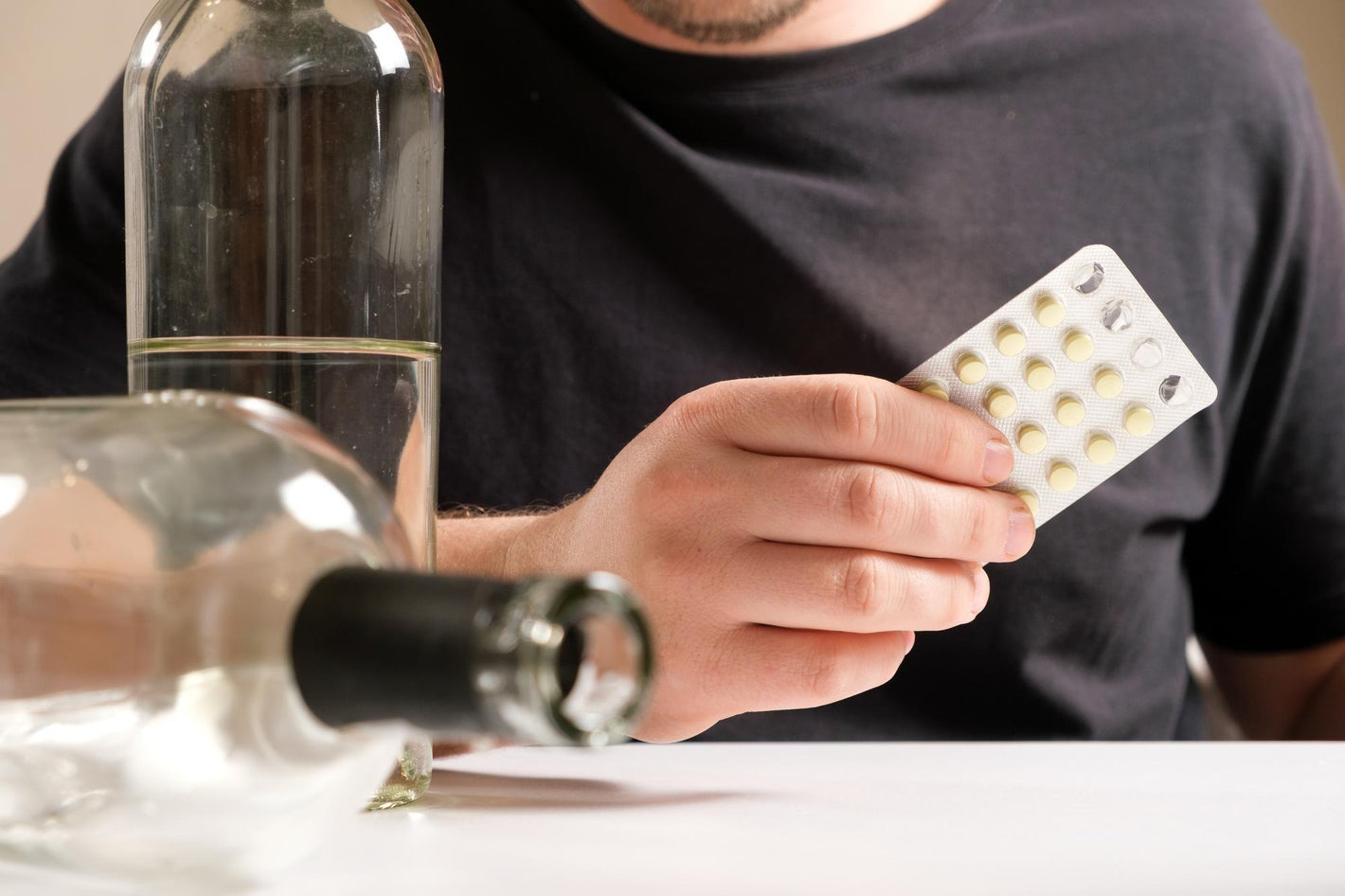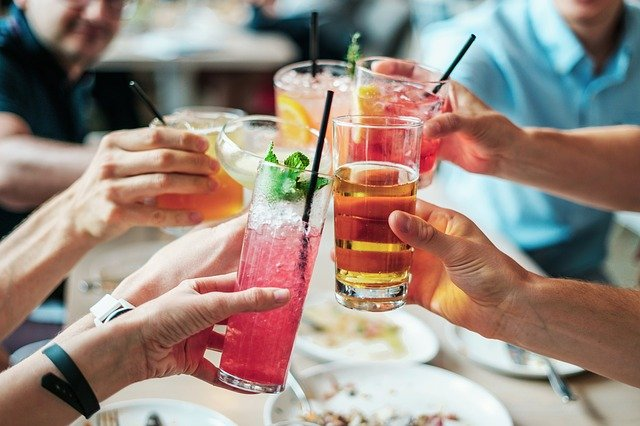Can You Drink Alcohol While Taking Antibiotics?


If you're taking antibiotics, would it be safe to drink alcohol? This article is for people who are currently on antibiotics and are just curious about how alcohol might impact them, those who might be struggling with alcohol addiction, and those who are interested.
In short, for the most part, small amounts of alcohol have little impact on antibiotics. But, some antibiotics can cause alcohol to stay in your system for too long. And drinking too much can also have an effect.
This article will cover everything you'll need to know.

The first thing to establish is "What are antibiotics". It's a term you might often hear at the doctor's clinic, in medicine adverts, and in articles about getting better.
Simply put, antibiotics are drugs that kill or limit bacteria. When bacteria enter our system, it could be difficult for our natural immune system to handle. But, when we take antibiotics, our immune system and the drugs team up to kill the bacteria.
There are several categories of "antibiotics", including quinolones, aminoglycosides, macrolides, oxazolidinones, tetracyclines, pleuromutilins, beta-lactams, lipoglycopeptides, polymyxins, and cyclic lipopeptides.
The name of each kind of antibiotic tells you about its chemical structure. Which type of antibiotics you should take will vary depending on what kind of bacteria you're trying to kill. It can also impact their interaction with alcohol.
If you're unsure about which antibiotic is to be taken, talk to your doctor or GP. The antibiotics prescribed to you should kill the bacteria infecting your body.
Although most antibiotics are made in a lab today, they first came from soil bacteria and fungi.
So, now we know that antibiotics are drugs made to kill bacteria. The next question is, how do they do that?
Well, depending on the type of bacteria and what antibiotic you take, the antibiotics will kill or stop them from multiplying.
Suppose the goal is to stop reproduction—the drug attacks the bacteria's DNA replication, metabolism, and protein production. As soon as the bacterium dies, it will leave no legacy behind.
Other antibiotics will attack the cell wall, causing the bacterium's insides to spill out and the organism to die.
As great as antibiotics are, they are not magical drugs that can cure every problem under the sun. Suppose you struggle with a headache or coronavirus (or other viral infections). In that case, antibiotics can be of very little use.
However, antibiotics could solve other problems. If you suffer from any of the following issues, it may be worth talking to your doctor about whether they could prescribe you some over-the-counter available antibiotics.
· Ear infections.
· Dental infections.
· Skin infections.
· Meningitis.
· Strep Throat.
· Pneumonia.
· Whooping cough.
· Eye infections (tetracyclines for example)
There are many mild bacterial infections and very serious illnesses that antibiotics can be used to treat, those were just a few examples.
Many of us will likely drink alcohol regularly. But have you ever stopped to question what exactly alcohol is?
First, alcohol is an organic compound- meaning it's made by nature, not in a laboratory.
Each molecule must have at least one hydroxyl attached to a carbon atom. And if you're wondering, hydroxyl is just OH, Oxygen and Hydrogen.
The four types of alcohol are methanol, ethanol, isopropanol, and tert-butanol. When you drink commonly available alcoholic beverages, you're drinking ethanol.
Each of the four types of alcohol is different from the others because of the number of carbon atoms. Methanol has one carbon atom per molecule, but tert-butanol has 4.
Generally speaking, drinking a bit of alcohol will have little impact on the antibiotics. But, there are some exceptions to this rule.
For example, "cephalosporin cefotetan" is a type of antibiotic that can slow the breakdown of alcohol.
Drinking alcohol whilst taking this particular antibiotic can create acetaldehyde. This chemical can make you very unwell from alcohol.
Make sure to discuss the impact of alcohol with your doctor when he prescribes antibiotics to you.
But, no matter what type of antibiotics you're taking, having it with alcohol can impact your immune system.
There are multiple ways it can do this.
It can slow the production of white blood cells, stop various organs from performing their jobs properly, kill gut bacteria, and increase inflammation. Thereby, affecting your immune system adversely.
But, when your immune system doesn't work as hard, you'll likely get sick. Not to mention, the chances of antibiotic resistance in bacteria increase without your body's natural backup.
With a weaker immune system, a bacterial infection is more likely to develop into a severe disease or disorder.
If you notice any of these symptoms or severe side effects after drinking alcohol whilst on antibiotics, please talk to your doctor.
Even if it's not common for someone to have any impact by drinking alcohol with antibiotics, try to cut out alcohol if you are impacted.
· Vomiting.
· Sweating.
· Stomach cramps.
· Chest pain.
· Breathing difficulty.
· Heart rate speeding up.
For a full range of medications, visit our Welzo Online Pharmacy Page. For more details click here.
In reality, giving up alcohol is much easier said than done, particularly if you suffer from an alcohol dependence
There are several options if you need to quit or reduce your alcohol use but just can't.
CBT, or talking therapy, is when you discuss with a therapist how your mind works and what goes on in your head when you pour yourself a drink. By learning about your psychology, you can equip yourself better to change your thoughts.
You can also find medications that you could take to stop you from having an alcohol craving. The medication may help alleviate withdrawal symptoms if you consume alcohol on a regular basis.
Self-Help doesn't mean "you're on your own, pal". It's when someone gives you the tools and resources to overcome alcohol addiction by yourself.
You can also join a support group such as Alcoholics Anonymous so that you can talk to others on the same path as you.
Most of the time, occasionally having alcoholic drinks will have little impact on antibiotics.
But, if you drink too much alcohol, it can weaken your immune system so that the antibiotics won't be as efficient. And certain types of antibiotics can make alcohol stay in your system for too long, even if you don't consume alcohol in large quantities.
Overall, there is no benefit whatsoever to having alcohol. So, if you'd rather be safe than sorry if you are taking antibiotics, then maybe have a juice with your dinner instead of a beer?
For a full range of blood tests and medications, visit our Welzo Online Pharmacy Page. For more details, click here.










Plus get the inside scoop on our latest content and updates in our monthly newsletter.